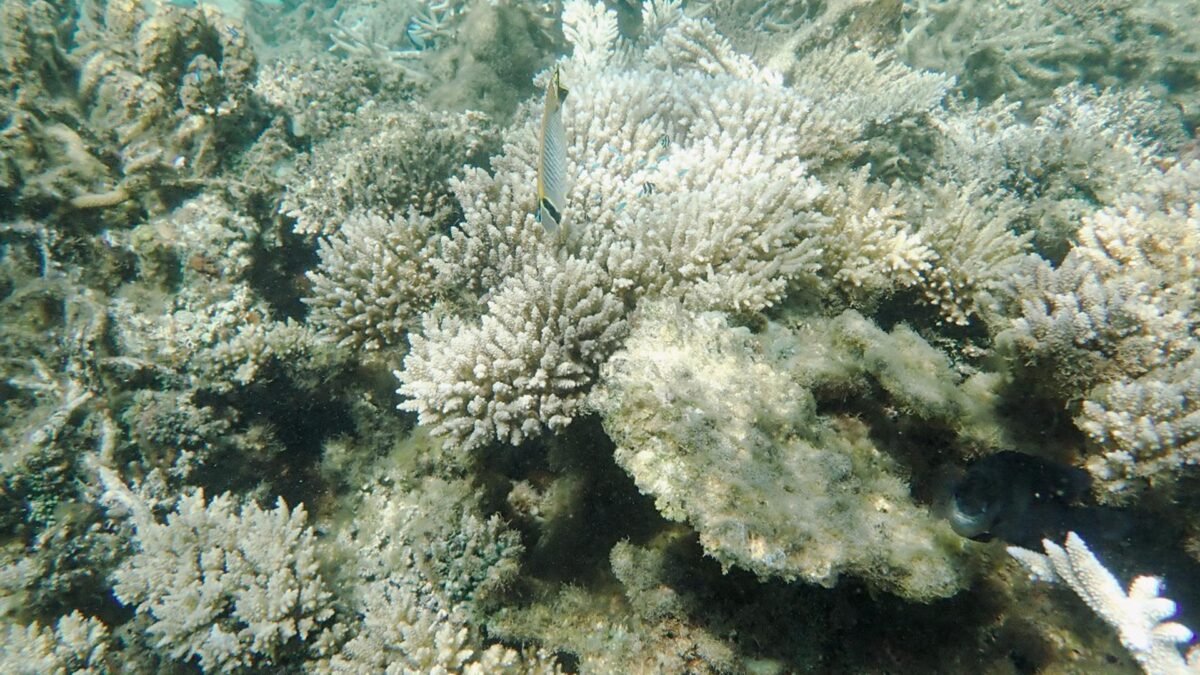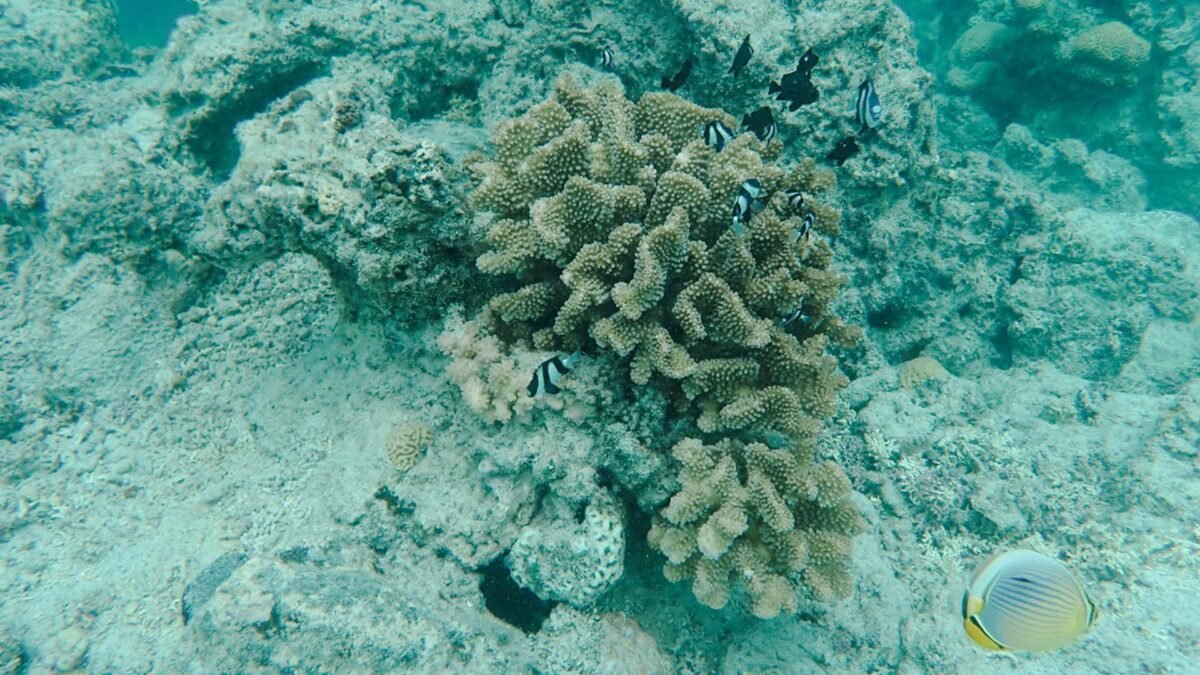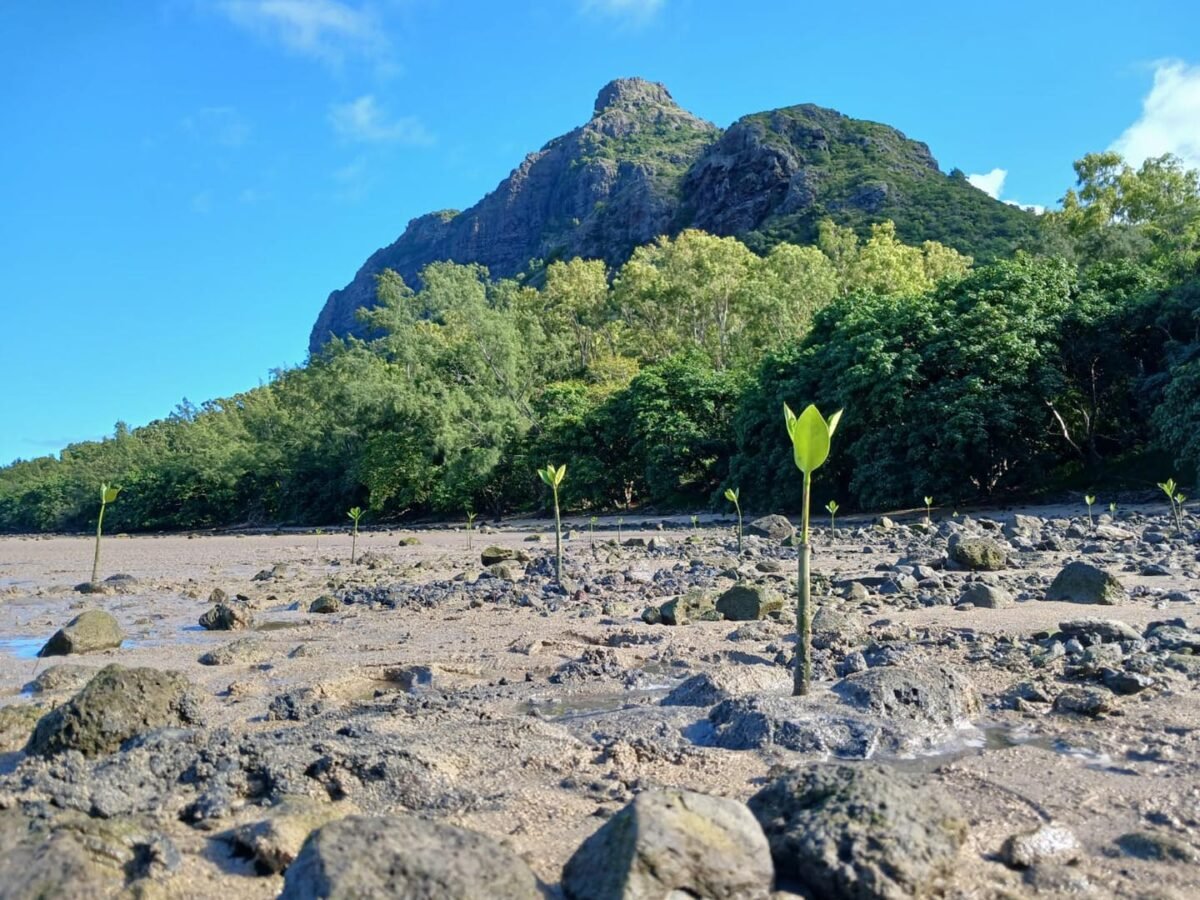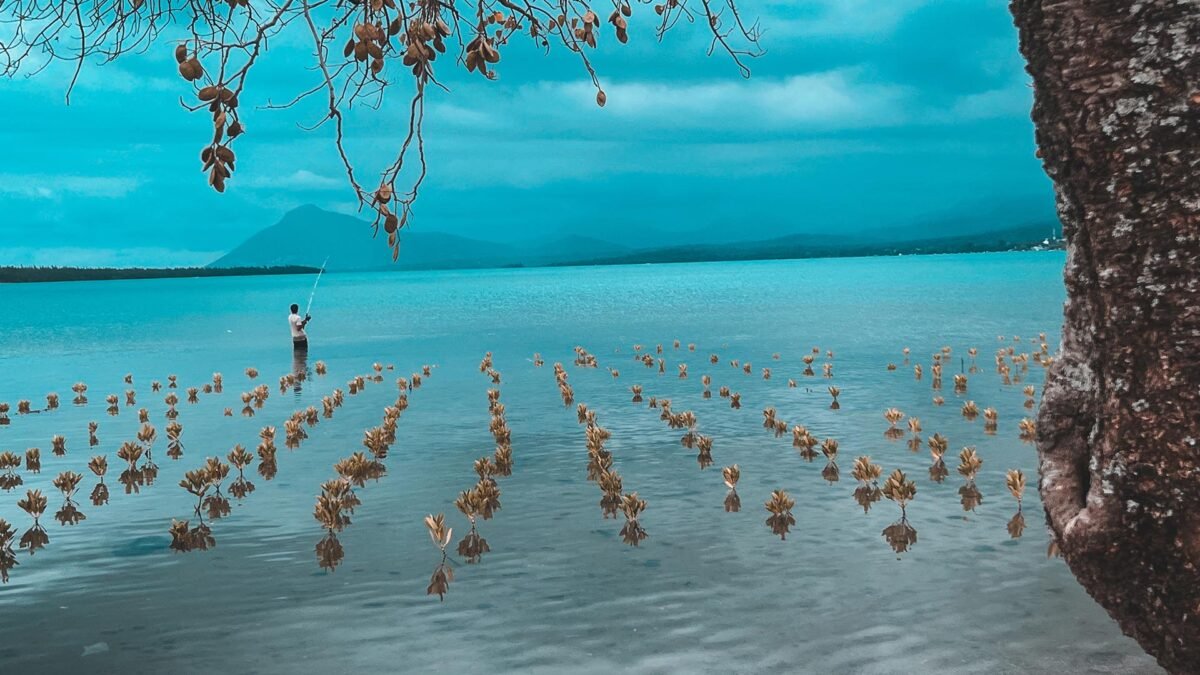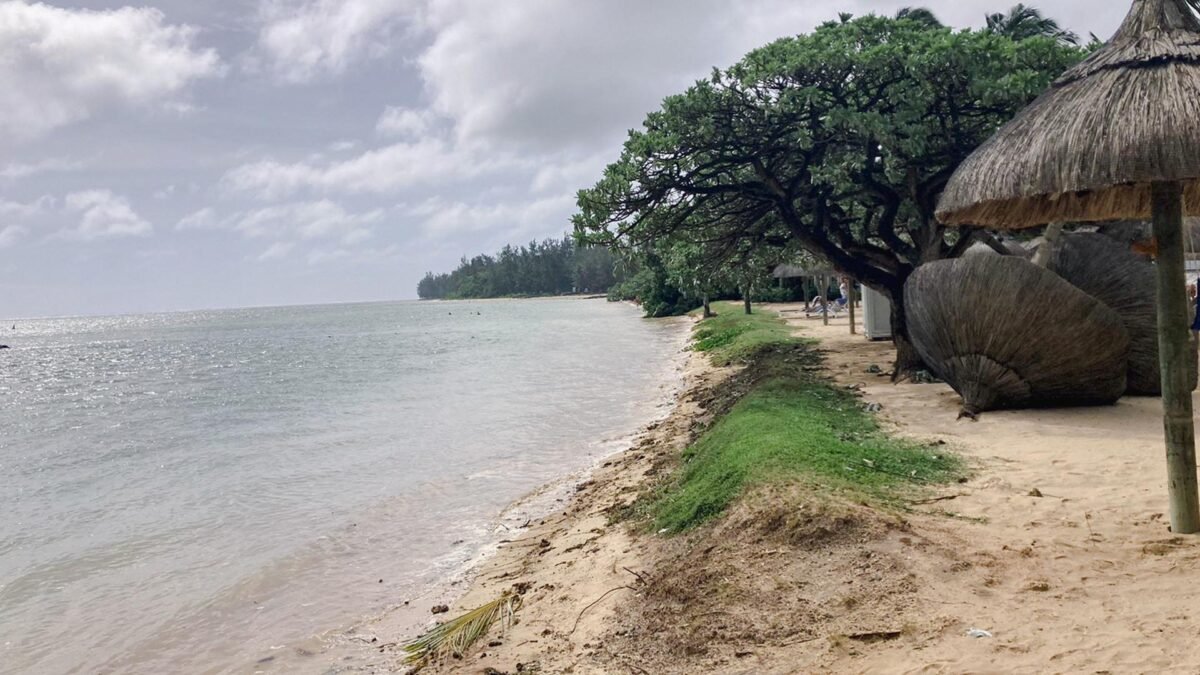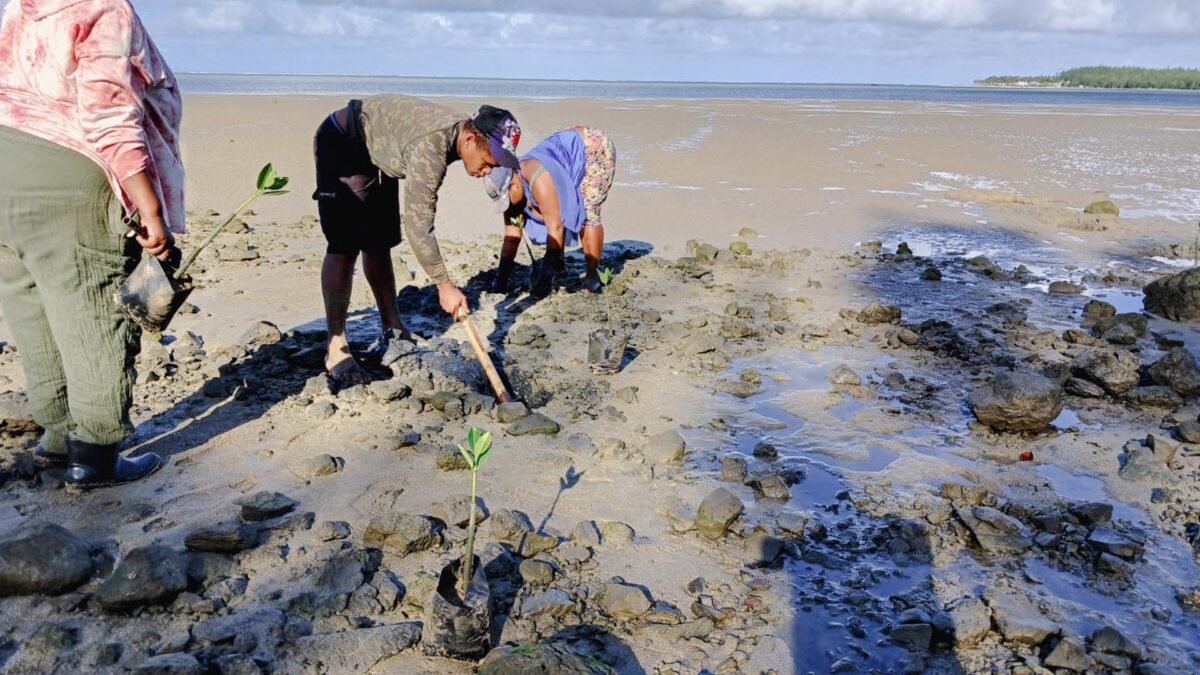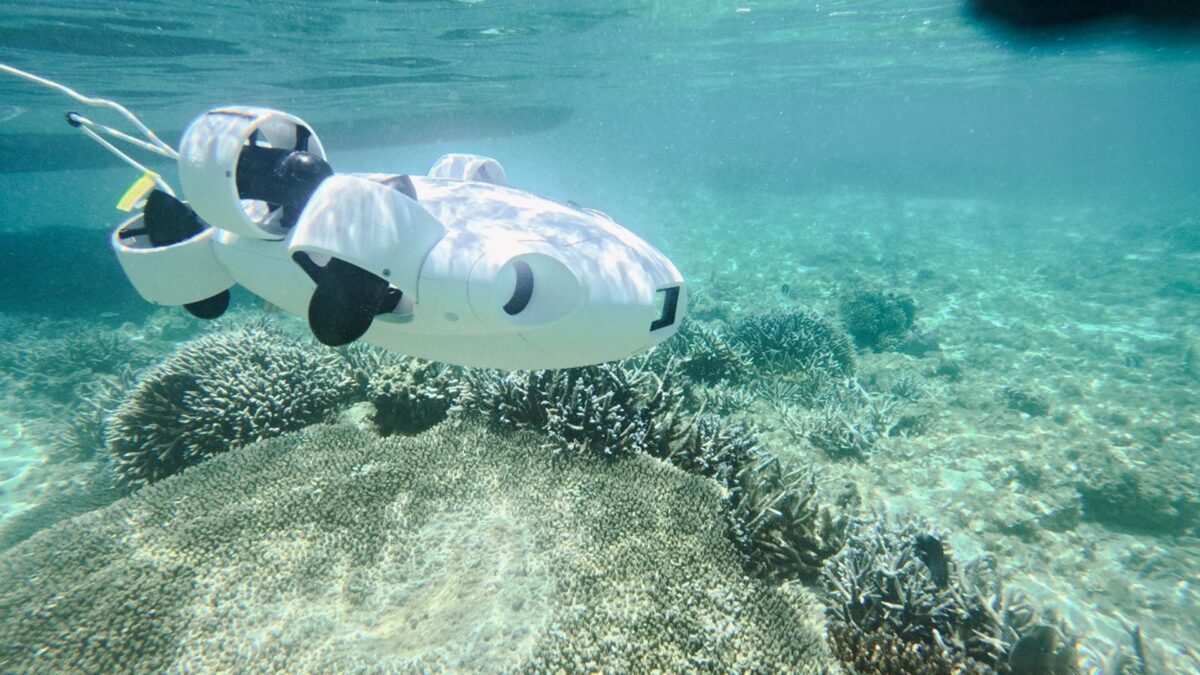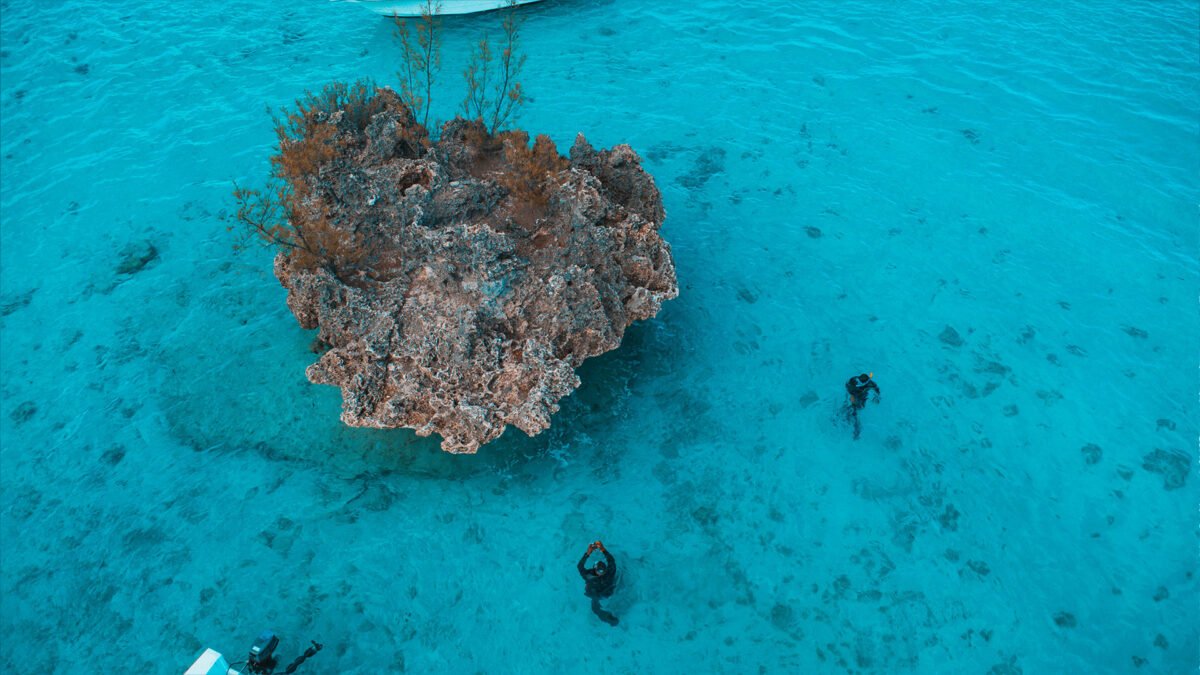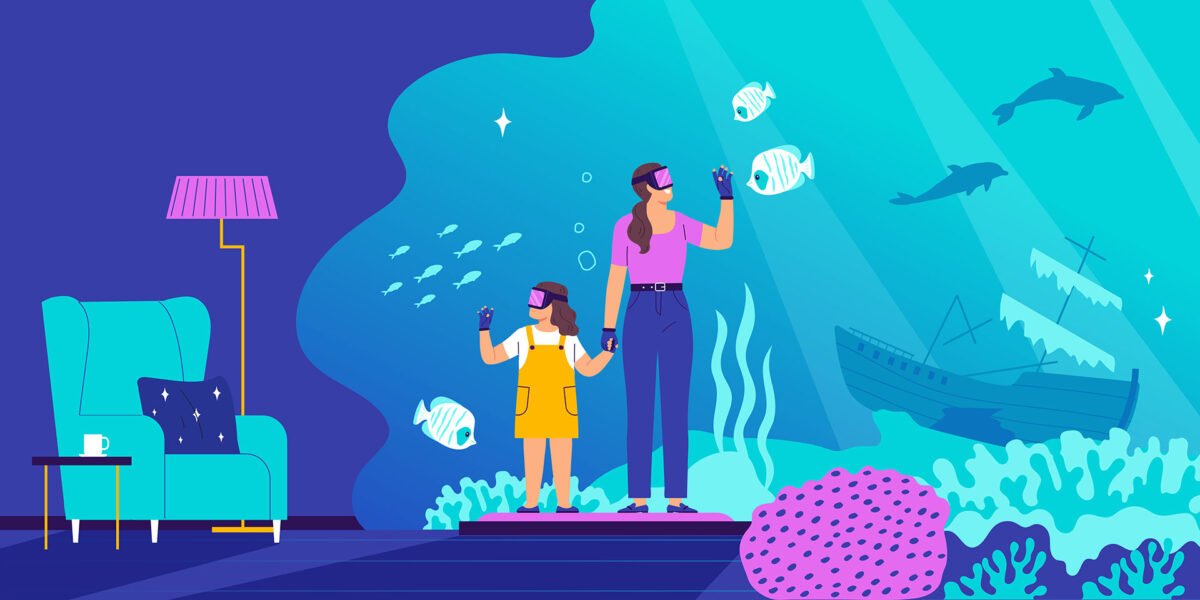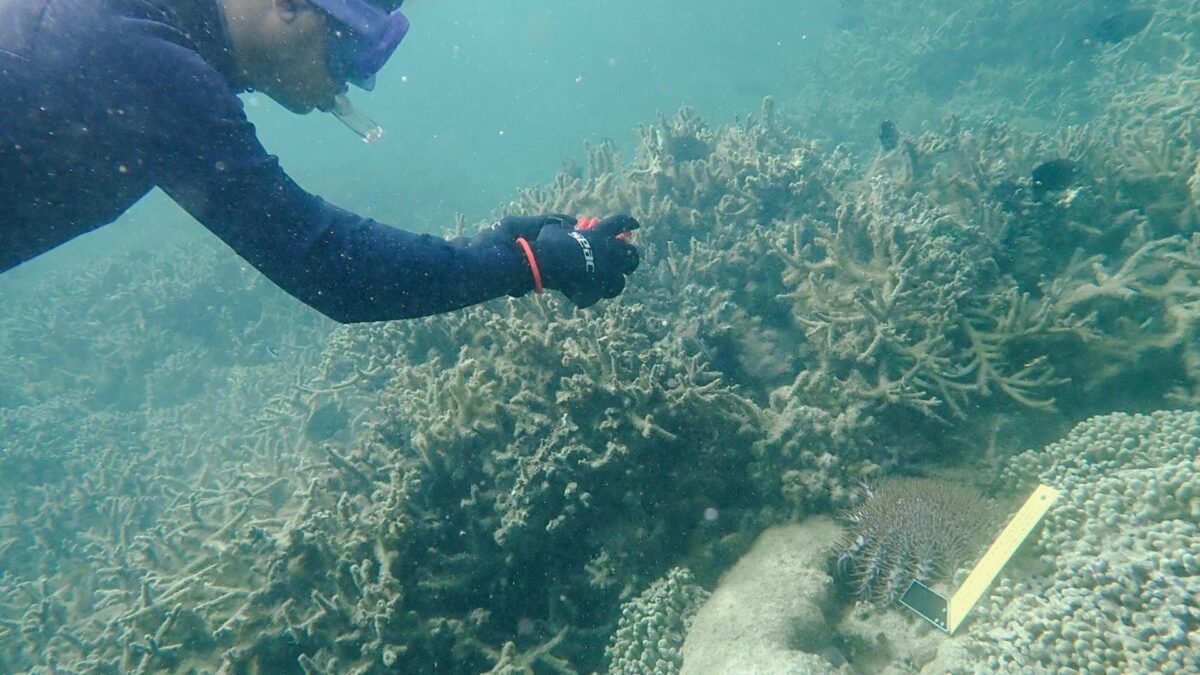Community-led Seagrass Protection and Climate Adaptation through VMCA Creation in Le Morne (Supported by the Canada Fund for Local Initiatives — CFLI)
Community-led Seagrass Protection and Climate Adaptation through VMCA Creation in Le Morne (Supported by the Canada Fund for Local Initiatives...
Read More
Voluntary Marine Conservation Area (VMCA) at St Felix
Nestled in the southern shores of Mauritius, the St Felix lagoon, known for its unique shallow coral ecosystem brimming with...
Read More
Monitoring Programmes within the St Felix VMCA
In the heart of the St Felix VMCA, CGC diligently conducts regular monitoring and preservation activities to maintain the health...
Read More
Voluntary Marine Conservation Areas at Le Morne
In late 2024, CGC received all necessary approvals to establish four VMCAs in the Le Morne lagoon, a UNESCO World...
Read More
Endemic Plant Reforestation at Le Morne
This project embodies a visionary effort to restore the native coastal forests of the Le Morne region, initiated in 2018...
Read More
Mangrove Restoration at Le Morne
Mangroves are indispensable to coastal ecosystems, serving as natural barriers against erosion, storm surges, and rising sea levels. They play...
Read More
Beach Erosion Mitigation: “Community-based green-solutions to combat coastal erosion and protect sandy beaches”
The initiative to plant "Liane Batatran" (Morning Glory) to combat beach erosion is a groundbreaking effort that aligns with Coral...
Read More
Pilot Biofertilizer Project
Biofertilizers are eco-friendly soil enhancers that enrich soil fertility without the adverse environmental impacts associated with chemical fertilizers. Derived from...
Read More
Coral Restoration at St Felix
In 2024, CGC secured a grant from the MOL Charitable Trust to execute a coral restoration project at St. Felix....
Read More
Crystal Rock: Conservation and Monitoring Initiative
The Crystal Rock Preservation Project is a comprehensive initiative aimed at protecting and conserving the fragile marine ecosystem surrounding Crystal...
Read More
AquaVR Experience – Virtual Reality for Marine Conservation Education
The AquaVR Experience is an innovative virtual reality (VR) platform designed to revolutionise marine conservation education in Mauritius by providing...
Read More
Reviving Le Morne – Community-Driven Coral Restoration for Future Resilience
The Reviving Le Morne project is a small-scale coral restoration initiative dedicated to rehabilitating the degraded coral reefs of Le...
Read More
Green Roots – Endemic Plant Nursery for Ecosystem Restoration
The Green Roots – Endemic Plant Nursery for Ecosystem Restoration project aims to establish a fully functional native plant nursery...
Read More
Historical lagoon trail discovery
In 2021, Coral Garden Conservation developed the Historical Eco Marine Trail Discovery, a boat tour aimed at educating both tourists...
Read More


